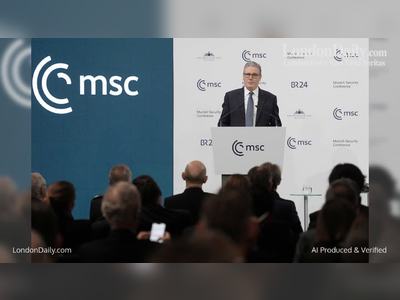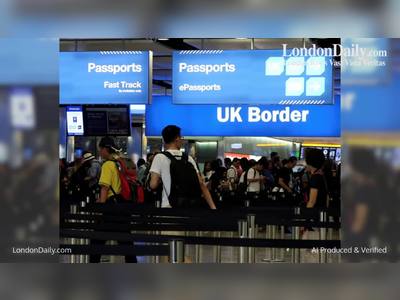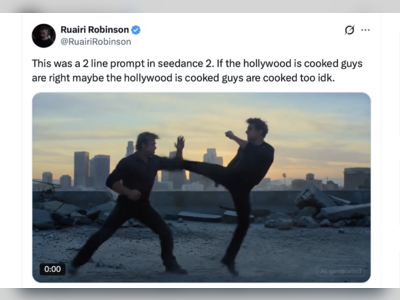Justice Department Calls on Supreme Court to Deny Trump Request to Delay TikTok Ban Law
The Biden administration pushes forward with enforcing a divestment deadline amid national security concerns tied to TikTok's Chinese ownership.
The U.S. Department of Justice (DOJ) has urged the Supreme Court to reject President-elect Donald Trump's appeal to delay the implementation of a law requiring the sale or banning of the social media app TikTok by January 19, citing national security threats.
This legal dispute underscores the growing tensions between Washington and Beijing over technology and data sovereignty.
TikTok, owned by Chinese company ByteDance, has faced scrutiny in the United States due to concerns over its potential misuse for espionage and influence operations.
The DOJ argues that ByteDance's control over TikTok enables access to sensitive data on 170 million Americans, posing a 'grave threat to national security.' According to the DOJ’s filing, there is a bipartisan consensus that China seeks to undermine U.S. interests through data collection and covert operations.
The contested law, passed in April, mandates ByteDance to divest TikTok’s U.S. operations.
If the deadline is enforced, new downloads of TikTok would be blocked, while existing users could continue to access the app temporarily before its functionality diminishes over time.
Trump’s legal team, in a brief filed last week, requested that the Supreme Court extend the January 19 deadline to allow the incoming administration time to explore 'a political resolution.' This marks a notable shift from Trump’s stance in 2020, when he sought to ban TikTok outright.
Lawyer D. John Sauer emphasized that the requested extension would not preclude ByteDance from continuing negotiations for divestment.
TikTok has mounted its own defense, urging the Supreme Court to block the law on First Amendment grounds.
The company argues that the legislation unfairly targets TikTok for its content rather than data concerns, pointing out that Congress has not imposed similar measures on other Chinese-owned platforms like Shein and Temu.
The Supreme Court is scheduled to hear arguments on January 10, leaving a narrow window for resolution before the law's January 19 enforcement deadline.
In its submission, the DOJ contended that ByteDance had not demonstrated a likelihood of success on the merits, a prerequisite for the court to grant Trump’s requested delay.
As the case progresses, the Biden administration retains the option to extend the deadline by 90 days if it determines that ByteDance is making 'substantial progress' toward compliance.
This legal battle unfolds against the backdrop of broader U.S.-China tensions, highlighting the geopolitical complexities of technology governance and national security.
The outcome of this case could have significant implications for U.S. policy on foreign technology ownership and the regulation of social media platforms, reflecting the intersection of digital privacy, free speech, and international relations.
This legal dispute underscores the growing tensions between Washington and Beijing over technology and data sovereignty.
TikTok, owned by Chinese company ByteDance, has faced scrutiny in the United States due to concerns over its potential misuse for espionage and influence operations.
The DOJ argues that ByteDance's control over TikTok enables access to sensitive data on 170 million Americans, posing a 'grave threat to national security.' According to the DOJ’s filing, there is a bipartisan consensus that China seeks to undermine U.S. interests through data collection and covert operations.
The contested law, passed in April, mandates ByteDance to divest TikTok’s U.S. operations.
If the deadline is enforced, new downloads of TikTok would be blocked, while existing users could continue to access the app temporarily before its functionality diminishes over time.
Trump’s legal team, in a brief filed last week, requested that the Supreme Court extend the January 19 deadline to allow the incoming administration time to explore 'a political resolution.' This marks a notable shift from Trump’s stance in 2020, when he sought to ban TikTok outright.
Lawyer D. John Sauer emphasized that the requested extension would not preclude ByteDance from continuing negotiations for divestment.
TikTok has mounted its own defense, urging the Supreme Court to block the law on First Amendment grounds.
The company argues that the legislation unfairly targets TikTok for its content rather than data concerns, pointing out that Congress has not imposed similar measures on other Chinese-owned platforms like Shein and Temu.
The Supreme Court is scheduled to hear arguments on January 10, leaving a narrow window for resolution before the law's January 19 enforcement deadline.
In its submission, the DOJ contended that ByteDance had not demonstrated a likelihood of success on the merits, a prerequisite for the court to grant Trump’s requested delay.
As the case progresses, the Biden administration retains the option to extend the deadline by 90 days if it determines that ByteDance is making 'substantial progress' toward compliance.
This legal battle unfolds against the backdrop of broader U.S.-China tensions, highlighting the geopolitical complexities of technology governance and national security.
The outcome of this case could have significant implications for U.S. policy on foreign technology ownership and the regulation of social media platforms, reflecting the intersection of digital privacy, free speech, and international relations.











